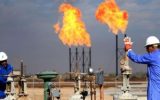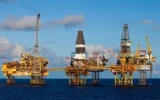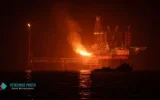
On February 17, the household, commercial, and small industrial sectors consumed 66 percent of the total natural gas delivered to the national grid.

Household, commercial, and industrial gas consumption on the seventh day of Bahman reached 672 million cubic meters, equivalent to 77 percent of the total gas injected into the national network.

The Deputy Director of Operational Efficiency at the National Efficiency Organization of Iran, emphasizing the strategic role of the gas collection from flare stacks project in enhancing the efficiency of the country's energy supply chain, considered this project as one of the most important national projects and a driver efficiency.

The production manager of the National Oil and Gas Company of Southern Iran, explaining the latest production status and gas collection from associated petroleum gases, announced a significant reduction in gas flaring in recent years and favorable progress in comprehensive gas collection projects.

The South Pars enhancement project, with signed multi-billion dollar contracts, has yet to move beyond the stage of paperwork and studies.

Gas consumption in residential, commercial, and industrial sectors reached 682 million cubic meters on the sixth day of Bahman.

The country's national gas network, under the coordinated management of the Ministry of Petroleum and with targeted planning for increasing production and controlling gas balance, maintained its stability during the steady winter cold, registering a record 737 million cubic meters of gas consumption in residential and commercial sectors without any sustained pressure drop and continued to supply gas to residential across the country uninterruptedly.

With the expertise of Iranian specialists, the Hook Up operation in Phase 11 of South Pars was successfully carried out.

The head of energy affairs at the National Planning and Budget Organization of Iran, stating that the National Gas Company of Iran is on a path of transformation and maturity in governance, said: "The company's new approaches in the areas of consumption management and energy consumption optimization reflect the evolution of a path that was in the past years in the country has now reached a more mature stage.

The deputy of planning for the Oil Minister described the signing of 22 contracts in the field of gas consumption optimization with the participation of the private sector as the beginning of a major revolution in the gas industry of the country, and said: "With the utilization of potential, the future path will be different from the past."










